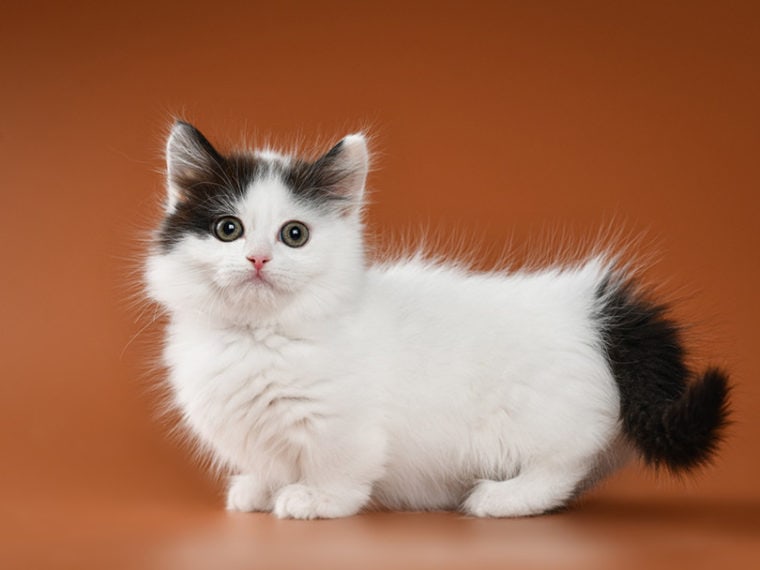
Munchkin cats are known for their unique physical characteristics, particularly their short and adorable legs!
They have become increasingly popular over the years with their cute appearance and playful personalities winning the hearts of many cat lovers. Munchkin cats are a relatively new breed that have been around since the late 1980s. Their small limbs are a result of a natural genetic mutation known as pseudoachondroplasia, which is a short-limb form of dwarfism.
With their natural and spontaneous genetic mutation, one question that many potential owners have is, “How long do munchkin cats live?” Usually between 12 to 15 years.
In this article, we’ll take a look at the average lifespan of Munchkin cats, as well as the factors that can affect their lifespan!
What’s the Average Lifespan of a Munchkin Cat?
On average, Munchkin cats live between 12 to 15 years. However, some may live longer, while others may have a shorter lifespan.
Breeding Munchkin cats is often considered controversial because of the purposeful breeding of a genetic mutation, but does this necessarily make them an unhealthier cat breed? Like most cats, it’s important to note that genetics, environment, and healthcare can all play a significant role in determining a Munchkin cat’s lifespan.
Why Do Some Munchkin Cats Live Longer Than Others?
1. Living Environment
Providing a safe and comfortable living environment for your Munchkin cat is important for their physical and mental health. It’s essential to keep their living space clean, free from toxins, and provide ample space for exercise and play. Because of their stature, getting up and down high spaces may be difficult for them.
Remember to provide them with the help needed such as stools, short tables, and even cat trees to help them get up and down as needed and also to prevent injury.
Exposure to harmful chemicals, extreme temperatures, and stressful environments can have a negative impact on their lifespan.
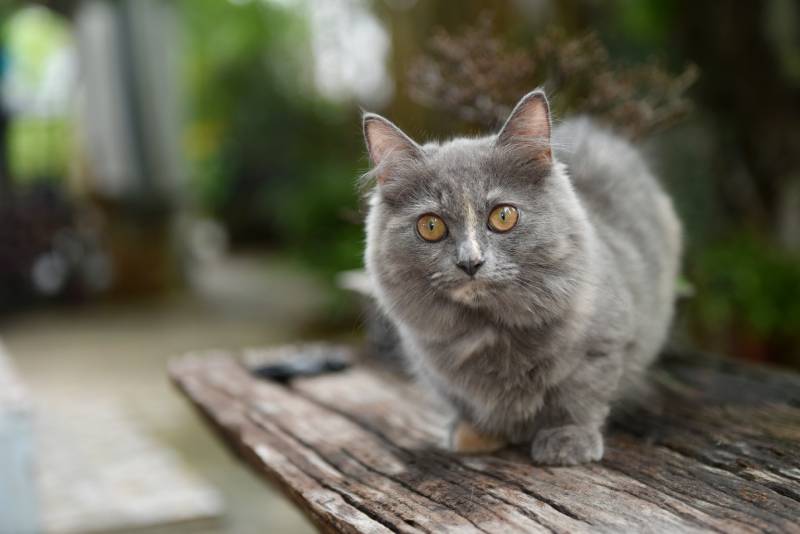
2. Nutrition
Like all animals, proper nutrition is crucial for a Munchkin cat’s health and longevity. A well-balanced diet that meets their nutritional needs is essential for their overall wellbeing. Feeding them high-quality cat food and avoiding feeding them table scraps or human food can help prevent obesity and other health complications.
3. Lifestyle and Exercise
Munchkin cats are active and playful creatures that require regular exercise to maintain their physical health. Engaging them in playtime and providing them with scratching posts and toys can help keep them active and healthy.
A sedentary lifestyle can lead to obesity and other health complications, ultimately affecting their lifespan.
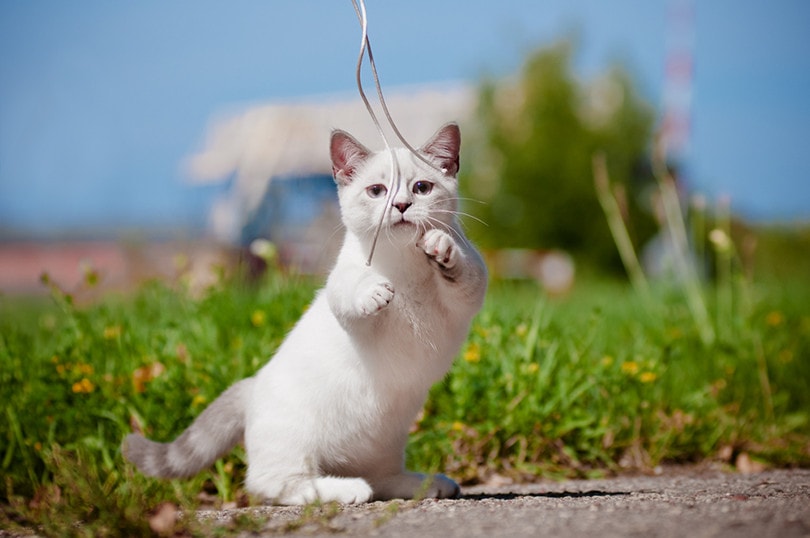
4. Breeding History and Genetics
Munchkin cats are a relatively new breed, and their breeding history can impact their lifespan.
Breeding Munchkin cats involves a Munchkin cat bred with a cat without the mutation, which would result in a litter of Munchkin cats as the munchkin mutation is a dominant trait.
Cats with a purebred lineage and no genetic defects may live longer than those with a history of inbreeding or other genetic defects. It is important to note that two Munchkin cats should not be bred together as it may have fatal results.
It’s essential to research the breeder and their breeding practices before adopting a munchkin cat to ensure their health and longevity.
5. Healthcare
Regular veterinary checkups and vaccinations are essential for maintaining a Munchkin cat’s health. Preventative care can help detect and prevent health complications, leading to a longer lifespan. It’s also important to administer flea and tick prevention and dental care to maintain their overall health.
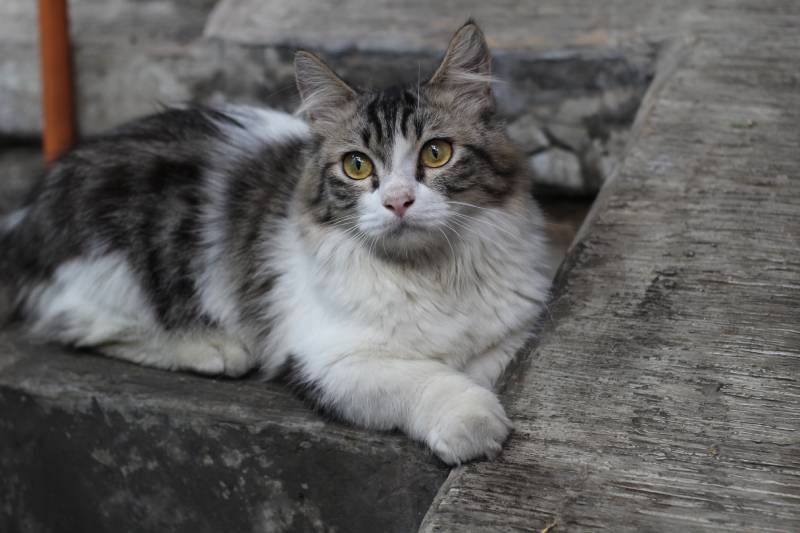
6. Health Complications
Like all animals, Munchkin cats can be prone to various health complications that can impact their lifespan.
Some common health issues include heart disease, hip dysplasia, and spinal problems. They are also prone to osteoarthritis, which can affect the normal development and growth of their bones affecting their ability to move.
Early detection and treatment of these health issues can help prevent further complications and extend their lifespan.
7. Life at Home
A loving and caring home can have a positive impact on a Munchkin cat’s lifespan. Providing them with ample attention and affection can help reduce stress and promote their overall wellbeing.
A calm and peaceful home environment can also help them live a longer and healthier life. Be sure to provide your Munchkin with lots of love and attention!
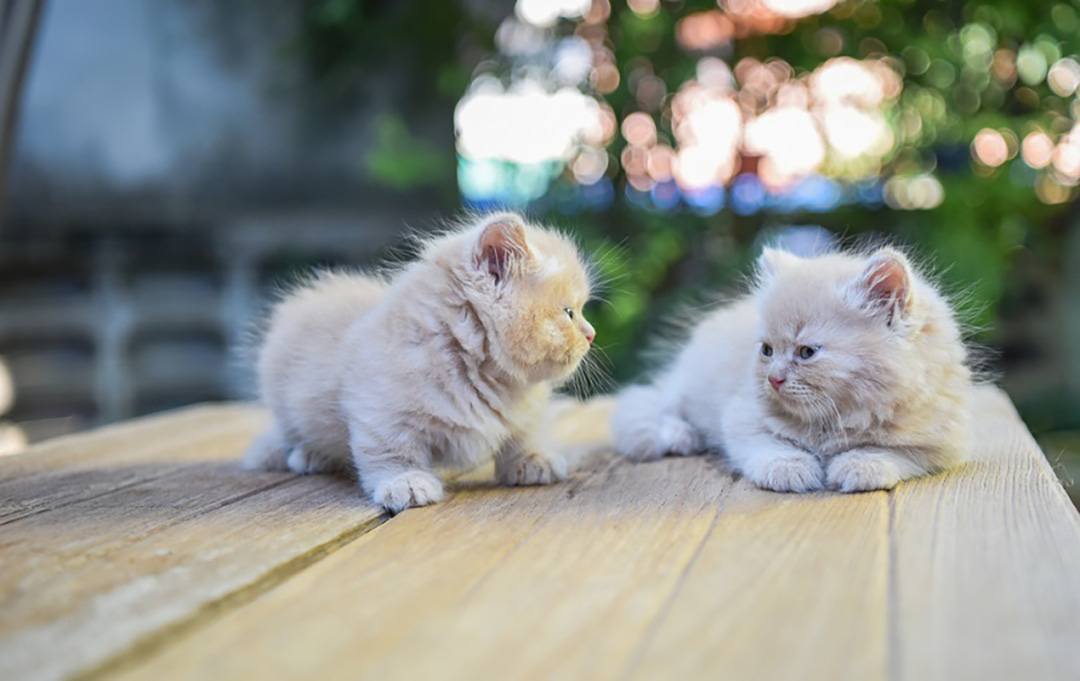
The 4 Life Stages of a Munchkin Cat
Munchkin cats have different behaviors, physical characteristics, and routines as they go through their normal development. Whether it’s 5 months, 5 years, or 15 years, what was an unusual behavior before may be their new normal at this particular age.
Regardless of these changes, keep in mind that a healthy diet and active lifestyle are crucial in each stage of their maturity!
Kitten
Munchkin kittens are adorable and full of energy. During this stage, they require a lot of attention and care, including regular veterinary checkups and vaccinations. Proper nutrition and socialization can help set them up for a healthy and happy life.
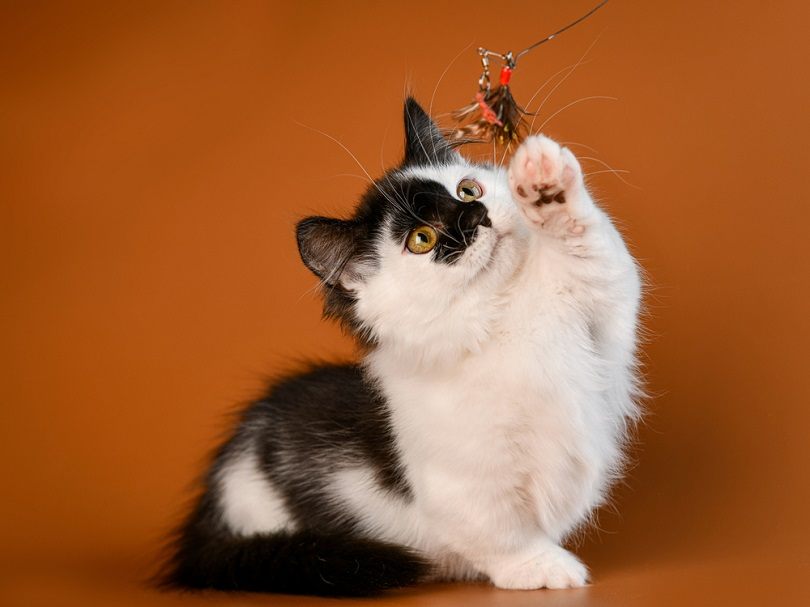
Young Adult
When Munchkin cats reach 1 year old, they reach the young adult stage of maturity. They become more independent and require regular exercise to maintain their health. Their meals transition to an adult diet to promote strong bones and muscles.
Regular veterinary checkups and preventative care are essential during this stage to prevent health complications.
Mature Adult
Munchkin cats enter their mature adult stage at around 7 to 10 years old. It’s important to monitor their health closely and continue with regular veterinary check ups especially with their transition of diet and activity. Diets for cats this age typically reduce their fat intake to keep them in shape.
Munchkin cats are a small breed, so they typically don’t grow to a larger size. Proper nutrition, including vitamins and minerals, and exercise are also important to maintain their health and extend their lifespan.
Senior
Munchkin cats enter their senior stage at around 11 years old. During this stage, they may experience age-related health complications, such as arthritis, dental problems, and reduced mobility. At this stage, they may not be as active as in the younger stages, but they still require movement and a diet that consists of protein with controlled amounts of fat and carbohydrates.
At this age, cats are generally more fragile and may require frequent check-ups with their veterinarian.
How to Tell Your Munchkin Cat’s Age

It can be challenging to determine a Munchkin cat’s age, especially if they were adopted as an adult. They are also a small breed, so many Munchkin cats are also often mistaken as kittens!
There are, however, some signs that can help you estimate their age, such as the condition of their teeth and coat, their activity level, and any age-related health complications they may have.
Conclusion
Munchkin cats are adorable and playful creatures that can bring joy and companionship to our lives. However, like all animals, their lifespan can be influenced by various factors, such as nutrition, environment, genetics, and healthcare.
By providing them with a safe and comfortable living environment, proper nutrition and exercise, and regular veterinary visits, we can help them live longer, happier, and healthier lives!
Featured Image Credit:







